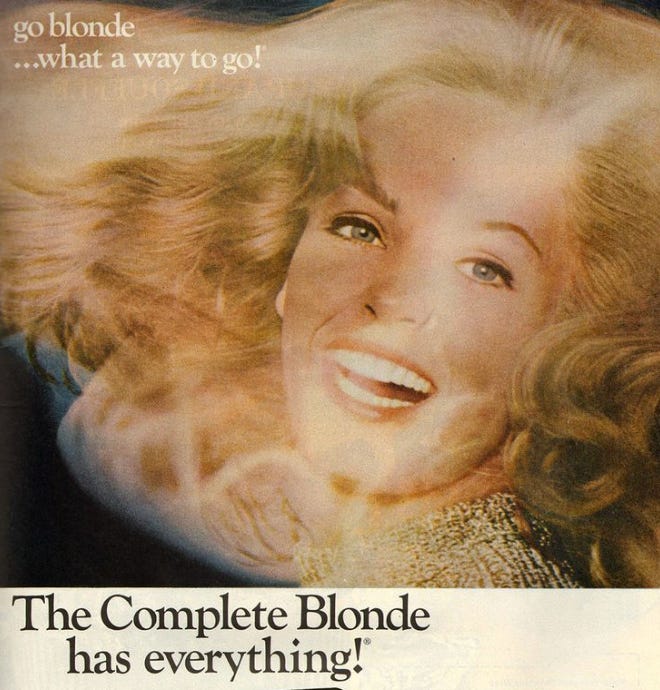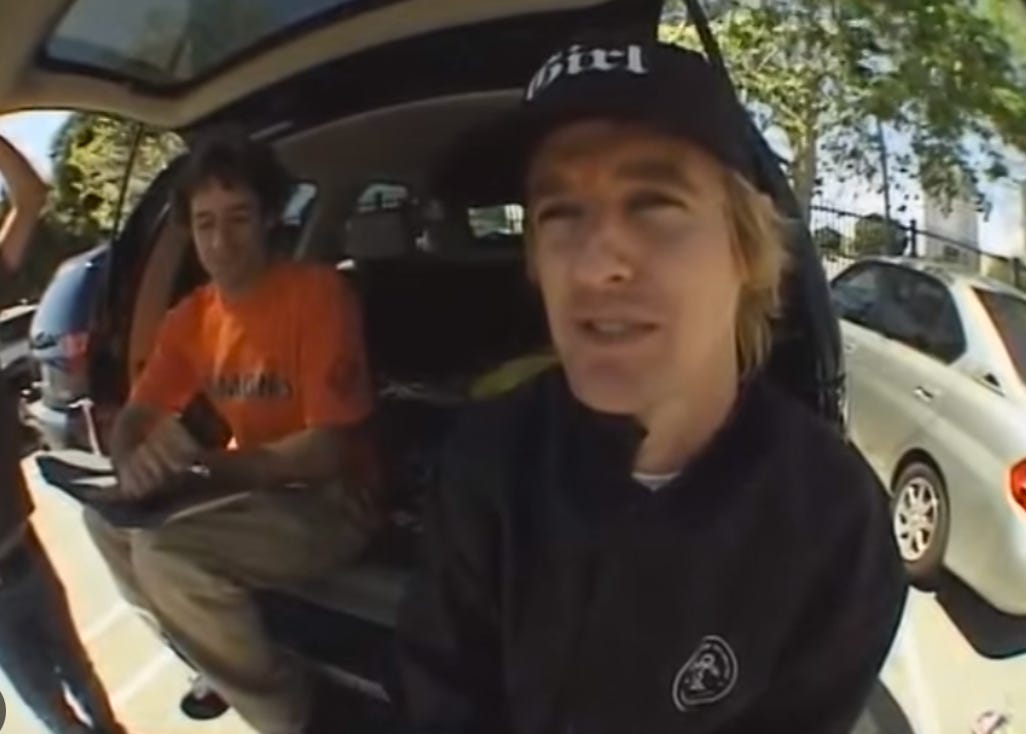Blond on blond(e)
The "Ten Movies, Ten Stories of Whiteness" series concludes with some thoughts on "Legally Blonde" and the only hair color capable of holding the entire weight of patriarchy and Whiteness
Top notes:
First up: Registration for Barnraisers Project fall cohorts closes on Friday (at the end of the day). I’d love for you to join us [they’re fun, virtual, free (though I do a pass-the-hat donation solicitation at the end) and not too onerous (five total sessions, spread out over ten weeks]. More information in that link up above.
Again, thank you to everybody who has pre-ordered The Right Kind of White. Apparently it made the Bookshop.org bestseller list last week!? Even if that was just a one-time blip (it most decidedly was!), it meant a ton. My goodness. And if you haven’t pre-ordered, you haven’t missed anything. Here’s why you might want to do so and here is the link to receive a thank you gift (one of which might come in handy sooner rather than later…).
My kids just went back to school, which means that this essay marks the end of the Summer Movie Series. We really did do ten films. Wild. Because I added in “The Blind Side,” I still have one more bonus one in my back pocket (“Hoosiers”) but I want to save that until my next trip to Indiana in October.
I’ve been promising paid subscribers a bonus essay for about a month now, and though sometimes it takes a while, I am a man of my word and do want to show how grateful I am for your support. As such, I deliberately decided to not make it a throw-away essay, but one that took both a lot of work and personal reflection. While this is landing in everybody’s inboxes, there’s a paywall halfway through. If you are a free subscriber who wants to keep reading but aren’t in a position to pay right now, here are three options:
I shifted the paywall to a “free trial,” so you can always read this one and then immediately turn off your subscription.
One of the pre-order thank you gifts is one year complimentary subscription! I’m going to activate all those today, so go ahead, kill two birds with one stone!
I am also, truth be told, pretty darn liberal with comped subscriptions. If you’re in a tough financial spot right now, just email me, no explanation needed, at garrett@barnraisersproject.org and I will flip the switch for you.
I wasn’t born blond. Back when I was a baby, I cycled through hair colors faster than a teenager who had recently discovered punk rock. What a cool, mercurial infant I was. No wonder my family had to move back to Montana before my first birthday: the Littleton, Colorado stroller set just couldn’t handle me.
My infant hair color journey goes as follows: First I had black hair, which fell out. Then I had red hair, which also fell out. I may have that order mixed up, but you get the point. A few months later, I had blond hair. And then, well, I kept having blond hair, for the rest of my life. And when I say that I have blond hair, I mean BLOND hair. Like, translucent hair. Like, horses might reasonably mistake it for straw and try to eat it hair. Like, when I went to a theater day camp in middle school and we performed The Sound of Music, I thought I got the role of Rolf the Nazi (a singing part! a big deal!) because of my preternatural dramatic talent, but then I looked at the cast photo and realized that, um, other factors might have come into play.
I will never know if my blondness would have also enabled me to either (a). get into Harvard Law School or (b). successfully spring my pilates instructor on a murder charge. Had a certain major motion picture come out a few years earlier, perhaps I would have dreamed bigger.
Before I go any further, yes, this is an essay about blond(e)ness. If you’re wondering if it is worth your time or if you should instead read (or re-read) Tressie McMillan Cottom’s essay about that particular hair color/deeply weighted cultural signifier, I mean, why not do both? God, that article is so good.
The elephant in the room, though, is that while I am blond, I am decidedly not blonde. Mine is the only gendered hair color in the English language. As a cis man, I am an e-less blond. Apparently, per the Oxford English Dictionary, that’s the spelling that in the early-20th century referred to “big blond beast[s"]… of the Nordic type.” Noted. Were I a woman, my blondness would earn both an “e” and a metric ton of added cultural baggage.
As McMillan Cottom notes in her iconic Times essay, “blond” and “blonde” are euphemisms for a particular variety of Whiteness. To be a natural blond(e) is to be pure White, extreme White, the most White that you can be. It infers that you come from Northern European stock, that your roots are with the peoples that have been White the longest. It also infers Christian heritage (which means, to cite just one example, that Jewish blond(e)ness has long been a complicated terrain). Above all, though, natural blondness is exclusive. Non-natural blondness certainly exists, and absolutely signals a relative proximity to Whiteness, but always at a distance.
So of course blondness is gendered, because what is Whiteness without patriarchy? What’s more, what is Whiteness without a clear delineation of what it means to be a White man and a White woman?.
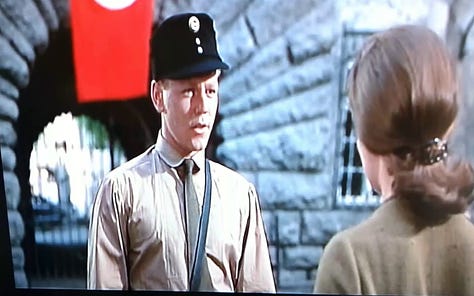
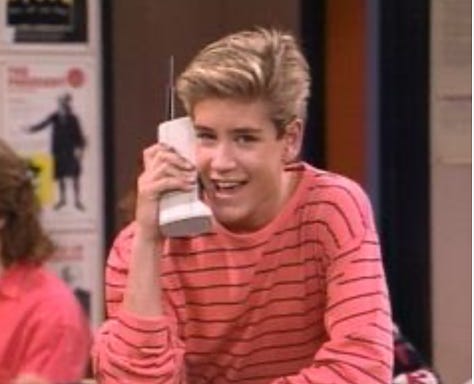
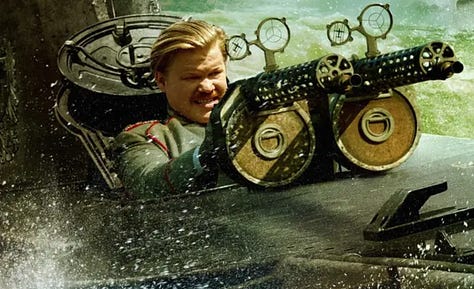
We’ll get to White womanhood soon, but first, a note on the other side of that false gender binary. Off of the top of my head, here is a VERY INCOMPLETE taxonomy of cis male blondness in film and television (as you’ll see, my people are not underrepresented in either medium). My goal here is vibes, not comprehensive perfection.
The Official White Pages Guide To Why There Is A (Presumably) Naturally Blond Man In Your Movie
If the character has short hair and hangs out with other blond people with short hair, they are either a supervillain and/or a member of an active Nazi/White supremacist group (see: the character Jesse Plemons plays in “Breaking Bad,” as well as my iconic performance as Rolf in “The Sound of Music,” etc.).
If the character has short hair and doesn’t exclusively hang out with other blond-ish people with short hair, they are most likely a middle-aged White dad type with a dark secret (see: lots of other performances by Jesse Plemons, at least after Friday Night Lights).
If the character has medium length hair and is incredibly attractive, they are an alpha male who likely has some sort of deep dark weirdo secret (this includes most Brad Pitt roles, though he exists somewhere along the dirty blond/brunettish spectrum— you’ll note, dirty blond adult males are more likely to be depicted as classically attractive alpha love interests than the super translucent, straw-haired blonds).
If the character has long hair, they likely exist somewhere along the care-free bad boy/stoner/surfer/rebel continuum (the archetypal example in this category, Jeff Spicoli in “Fast Times at Ridgemont High” is not played by a natural blond, so instead I’ll refer you to Heath Ledger’s character in “10 Things I Hate About You,” the vast majority of Owen Wilson’s filmography and of course “Saved by the Bell’s” Zach Morris).
If the very blond character in question is a child, they are a heartthrob in a Disney Channel original movie or a mid-90’s sitcom (translucent blond boys can be alpha objects of affection, but usually only until they hit their twenties!) or alternately are a “kid next door, but there’s something off about him “ (see: Macauley Culkin).
If the character is played by Cary Elwes, they are a dashing but charming medieval rogue.
If none of the above catergories apply, it is likely because the role in question is being played by an active member of the Skarsgård family.
Again, I’m sure that’s not a comprehensive/accurate list, but if you’ll offer me some grace with its imperfections for a second, it’s pretty telling, right?
If blondness is a stand-in for pure, uncut Whiteness, it’s notable how frequently—when we notice an adult cis male character’s natural blondness— that it’s either because they are up to no good (often with violent repercussions) or because they can afford to be either carefree and/or rogueish with little-to-no societal repercussions. If that’s not an example of our societal caste systems telling on themselves, I don’t know what is. However much the U.S. denies the continuing impact of Whiteness and patriarchy, our fictional characters reveal the truth: On the big screen, at least, White blond men are often either clear and present dangers or sun-kissed every dudes allowed to skate through life with minimal effort.
Also telling: Whether we love them or loathe them, both the blond rogue and the blond menace have agency. They get to control their own destiny without relying on anybody else. They are defined more by how they look at the world than how the world looks at them. Pretty good work if you can find it. As noted blond icon Owen Wilson might say, “wow!”




